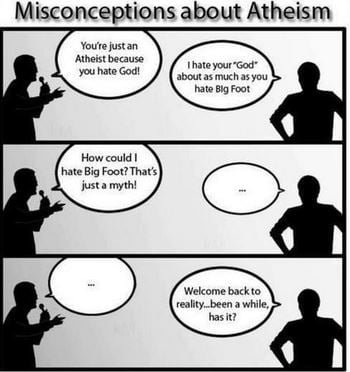
Thanks to ever-increasing media scrutiny and the willingness of sexually and psychologically abused people to tell their stories, Independent Fundamentalist Baptist (IFB) churches can no longer pretend that they don’t have a problem with sexual predators and child abuse. For years, IFB preachers have — with lustful glee — used the Catholic church sex scandals as sermon illustrations, reminding congregants that IFB churches don’t have such problems. We now know that predator IFB preachers, deacons, Sunday school teachers, and bus drivers, over the years, have had their perverse way with countless church children and teenagers. We also know that more than a few IFB pastors talk a great line when it comes to marital fidelity, but behind closed office, bedroom, and motel rooms, these “pillars of moral purity” are fucking their way through the church membership.
IFB churches are predominantly single-pastor run outfits or pastor/deacon run institutions, These pastors are often treated as demigods and given absolute control of their churches. When rumors of sexual misconduct become known, church members are expected to report the rumors to the pastor and/or deacons. It is then up to church leadership to determine what should be done about the rumors. Sadly, far too often church leaders hide these reports from congregants, preferring to quietly make problems go away. I know of two churches where numerous acts of sexual misconduct took place, yet congregants were never given a complete accounting of what happened. Hiding behind insurance company lawyers and following the advice of IFB “cleaners” such as the Attorney David Gibbs and the Christian Law Association, church leaders keep church members in the dark. Always protect the ministry, the church’s name, leaders are told. If congregants are told ALL the facts, why who knows what might come falling out of church closets!
Frustrated victims and their families have turned to law enforcement and the courts in attempts to hold IFB pastors and church leaders accountable for the vile things that have happened on their watch. In some instances, as in the case of the Catholic Church, settling lawsuits have impoverished and bankrupted offending IFB churches. I would think that IFB churches, now knowing that accusations of sexual misconduct or abuse could bankrupt them and lead to criminal prosecutions, would do their utmost to make sure their churches are safe places of worship. And many have done just that. While I still consider their theology to be psychologically harmful, I am grateful that some IFB church have taken steps to make sure church children and teenagers are not being sexually abused and that adult women are not being preyed upon by predator preachers.
Unfortunately, some IFB preachers think that church members suing is the problem. Using the Bible as a bludgeon, these so-called men of God warn congregants that God prohibits lawsuits against churches and fellow congregants. Thou shalt NOT sue churches, pastors, or fellow church members, IFB preachers often say. Allen Domelle is one such preacher,
In a July 18, 2016 post for the Old Paths Journal titled Suing a Church, REALLY? (link no longer active) Domelle writes:
Every pastor is always cognizant of the fact that one day his church may get sued. In a day when ambulance-chaser attorneys are very willing to represent clients who sue a church, pastors have to make sure they are extra careful with how their ministry is run. Every pastor knows that the Devil is more than willing to use one mishap to encourage someone to sue the church and cause them to face litigation for months, and sometimes years. Satan knows that this litigation will take focus and energy away from what the church is supposed to do; reach the world for Jesus Christ.
What is unexpected is for a church to be sued or threatened litigation by respected Christians. What surprises me is how well-known “Christian” leaders are not afraid to break the glass ceiling and actually file lawsuits against a church, or have their attorney send letters that threaten the church of litigation if they don’t do what the individual wants them to do. Whatever happened to the fear of God? I’m amazed that in recent years some of my pastor friends have had to deal with litigation because of preachers suing their church.
Never in my lifetime would I have imagined churches being sued or threatened with a lawsuit, especially by people who know better. There used to be a time in America when nobody would do anything against a church. Yet, somehow we have come to a low point in Christianity where people have stooped to the spiritual level of the church at Corinth. The church of Corinth was guilty of court litigation against fellow church members because they felt they had been defrauded. The Apostle Paul said in 1 Corinthians 6:6, “Now therefore there is utterly a fault among you, because ye go to law one with another. Why do ye not rather take wrong? why do ye not rather suffer yourselves to be defrauded?” I can only imagine that the Apostle Paul was just as shocked about Christians suing each other as I am.
Let me make this clear; it is just as evil to sue or threaten litigation as it is to attack or change the KJB, play rock music in church, live a sodomite lifestyle, or commit adultery. It is just as wrong for a Christian to sue or threaten litigation against a church or fellow Christian as it is never to run one bus or lead one person to Jesus Christ. Your Christian credentials are out the window if you would even consider suing a church.
….
My friend, suing a church is a direct contradiction of Scriptures. It doesn’t matter what the reason may be, it is always wrong. Just because others have chosen to disobey the Scriptures doesn’t make it right when you have been wronged. Listen, we have all been wronged, but for the sake of Christ, it is better to be defrauded than to go to law and make a mockery of the name of Christ.
While Domelle doesn’t mention abuse or sex-related lawsuits, there can be no doubt they are included in what he considers sinful acts of litigation against IFB churches and pastors. I find it interesting that Domelle calls such claims “mishaps,” acts inspired by Satan meant to sidetrack churches from their singular purpose — winning souls to Jesus Christ. Evidently, Domelle doesn’t value truth, justice, and restitution as much as does protecting — at all costs — the “good” name of IFB churches and pastors.
While I am indifferent towards IFB preachers suing each other or pastors suing former churches over being fired, when it comes to punishing predatory behaviors, I passionately support victims and their families in their use of law enforcement and the courts to punish offending churches and their leaders. The only way to put an end to rampant abuse is to make it so painful for offenders and their enablers that they will stop treating victims are collateral damage in their war against Satan.
Allen Domelle is best buds with Bob Gray, Sr. Both men are graduates of Hyles-Anderson College, and both sport honorary, pay-for-play doctorates. (Please see IFB Doctorates: Doctor, Doctor, Doctor, Everyone’s a Doctor .) Both men worship Jack Hyles — an IFB demigod who was once accused of adultery. (Please see The Legacy of Jack Hyles.) Domelle, an evangelist, considers the Longview Baptist Temple to be his home church. Longview was pastored by Gray, Sr. for many years and is now pastored by his son, Bob Gray, II.
Both Domelle and Gray, Sr. know about the plethora of rumors concerning sexual misconduct in IFB churches. Several readers have told me that Domelle’s preacher father was caught up in a sexual scandal of his own years ago. Since this scandal allegedly took place before the invention of the internet, I have been unable to verify this claim. Knowing these things, however, casts Domelle’s post in a different light. Of course he doesn’t like congregants suing IFB churches and pastors. Doing so opens up IFB outhouse vaults for all to see (and smell). If these accusations make it to court, defenders of the one true IFB faith know that discovery and sworn testimony will expose hidden secrets, dredging up past sexual misconduct claims.
Over the years, I have spoken privately with several victims of pastor sexual misconduct and child abuse. Their stories are heartbreaking, especially the parts about IFB adults and church leaders who were supposed to love and care for them and didn’t. Putting church “testimony” and reputation first, these abuse enablers shamed victims into silence, often suggesting that what they experienced is their fault of some sort of perverse test from God. Upon hearing such stories, I encourage victims to do three things:
- Tell law enforcement
- Consult a competent, non-Evangelical lawyer
- Publicize your story
By publicizing their stories, other victims often find the courage to tell their stories. As is often the case, IFB sexual predators and abusers rarely, if ever, stop their behavior. This is why victims, if they are able to do so, should use the legal system to punish IFB churches and their leaders for their misconduct. If doing so forces churches to close their doors, so be it. As Tony Barretta famously said, Don’t do the crime, if you can’t do the time.









